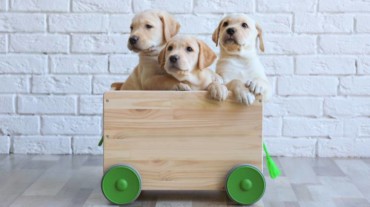
“Grief is like having one lung. No matter how hard you try, you can’t seem to get enough air in you”. A few months ago, comedian Vir Das made this serious and sincere point as he honoured fond memories of his “son” – his pet Watson – whom he lost last year. For anyone who has been through what losing a pet feels like, his words are cathartic.
Six months have passed since I lost my beloved pug, the sight of his photographs – his innocent eyes gazing through the frame – makes me heave a sigh of grief. There’s a presence in his absence. His distinct smell, his panting, his barks and antics feel so alive, and yet the home or homecoming, as any pet parent may agree, feels incomplete.
Grieving your pet’s loss can be as hurtful as it is when you lose a human close to you. Maybe even more. It has taken me weeks to come to terms with his absence – turning my silent tears of grief into smiles over his happy remembrances. But I can say from experience that coping with the loss of pet can take a little more work on your part than you would imagine.
The void will never fill, not even with another pet. But you can try to feel a notch better, turning your sadness into acceptance that your furry friend has crossed over.
Whether the society accords the same importance to your feelings after losing a pet as compared to when a relative or friend dies or not, whatever it is that you feel – no matter how incomprehensible – is totally valid.
Check out Vir Das’ Instagram post on Watson, and how he saw the positive side of dealing with the loss of his “son”.
Dr Roma Kumar, senior psychologist and co-founder of mental health startup, Emotionally.in, believes grief is inevitable when a pet takes the stairway to heaven.
Select Topics of your interest and let us customize your feed.
PERSONALISE NOW“When a pet dies, it hurts and it’s natural to question the meaning and purpose of pets in your life”. It’s not unusual to feel overwhelmed by the intensity of your sorrow,” Dr Kumar tells Health Shots.
That’s because pets provide companionship, comfort, acceptance, emotional support, are soothing, ease our anxiety with their constant presence, don’t judge or criticize us, provide us with unconditional love and you consider them members of your family, she adds.
Coping with losing a pet can be particularly hard, and can also lead to depression sometimes, as there is a feeling of a loss of purpose and an immense emptiness.

According to Dr Kumar, here are a few ways to help you feel better.
After the loss of a pet, it’s important to be kind to yourself, reach out to others who understand, find ways to memorialize your pet. Do whatever feels soothing. Healing takes time. Honour your pet and yourself by being patient. You should take comfort in your happy memories.
Try to explore new routines. Walking a dog several times a day would get you out of the house regularly. It’s important to still take walks and do other things that keep you occupied.
You feel what you feel. A healthier grief journey may come from taking your time to work through your feelings rather than trying to push them away or ignoring them.